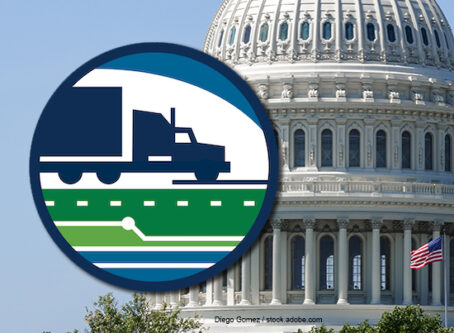FMCSA approves Alaska’s exemption request
The Federal Motor Carrier Safety Administration granted Alaska some relief from the entry-level driver training rule based on the state’s unique geography. However, the exemption will be limited to drivers in 14 defined geographical areas that lack infrastructure to allow completion of the full skills test.
In July, Alaska asked FMCSA for relief from the requirement that CDL applicants demonstrate proficiency in proper techniques for initiating vehicle movement, executing left and right turns, changing lanes, navigating curves at speed, entry and exit on interstate or controlled-access highway, and stopping the vehicle in a controlled manner.
As part of the application, Alaska Gov. Mike Dunleavy said the regulation requires students to demonstrate proficiency at skills that are not necessary, nor able to be demonstrated, in remote Alaska communities. The request specifically asked for an exemption from 49 CFR part 380, Appendix A, Section A3.1.
Instead, FMCSA granted an exemption from 49 CFR 383.3(e)(2).
“If FMCSA were to grant the relief requested, the affected drivers would be eligible to obtain an unrestricted CDL and operate in any location in the U.S., even though they did not receive the requisite training to safely operate a commercial motor vehicle,” the agency wrote in the notice. “The exemption applies only to CDL applicants who reside in one of the named remote geographical areas identified below and who operate only within those defined areas.
The 14 areas are Bethel, Prince of Wales Island, Haines, Ketchikan, King Salmon, Kodiak Island, Kotzebue, Nome, Mitkof Island, Sitka, Skagway, Unalaska Island, Utqiavik and Wrangell Island.
The exemption was granted for two years.
OOIDA opposed
The Owner-Operator Independent Drivers Association opposed Alaska’s request.
“These skills are inherent to highway safety, especially for drivers operating in interstate commerce,” OOIDA wrote in comments filed on Friday, Aug. 5. “While we understand the state’s unique geography and highway infrastructure, we believe this exemption could allow individuals who receive their Class A CDL in Alaska to drive in other states without sufficient knowledge of basic (commercial motor vehicle) maneuvers.”
While FMCSA addressed that concern by restricting the exemption to specific areas, OOIDA also has been fighting any efforts to undermine the entry-level driver training rule, which took effect in February.
“Currently, too many new drivers enter the industry without the basic skills to safely operate a commercial motor vehicle,” OOIDA wrote. “While the entry-level driver training rulemaking that went into effect earlier this year is far from sufficient, the regulation does establish minimum training criteria and performance standards for new drivers.
“These minimum requirements must continue to be strengthened, not waived.” LL









